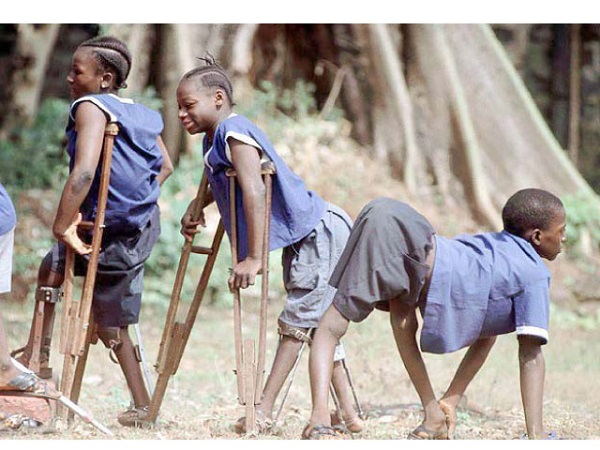
The World Health Organisation (WHO) has warned Nigeria about the global risk of the wild poliovirus (WPV) and vaccine-derived polio virus type 2 (cVDPV2), for which transmission remains high given the endemicity of WPV1 in Pakistan and Afghanistan, as well as the residual risks in Mozambique and Malawi.
The WHO country representative, Dr. Walter Kazadi Mulombo issued the warning today (February 7, 2023) in Abuja at the 39th Meeting of the Expert Review Committee (ERC) on polio eradication and routine immunisation in Nigeria.
Science Nigeria reports that the National Primary Health Care Development Agency (NPHCDA) hosted the ERC event in collaboration with its development partners.
According to Mulombo, given the impact of the COVID-19 pandemic on the economy, the interruption of the cVDPV2 outbreak demands renewed commitments and focus by all key players. Reaching and sustaining zero cases of cVDV2 in Nigeria in 2023 is achievable.
He, however, pointed out that the country would need to do more in addressing the residual risk of re-upsurge of cVDPV2 in consequential geographies.
“[Nigeria will have to work on] bridging immunity to avert the risk of wild poliovirus (WPV) importation, implement innovations and enhanced strategies to reduce orphan virus detection and improving monitoring and accountability mechanisms during the vaccination campaign.
“Continuous prioritisation of nOPV2 vaccine allocation for Nigeria to improve and speed and scope of vaccination response; and effectively impact of spread to the sub-regions.
“Accelerating efforts to mitigate delays in release of sequencing results,” he explained.
Science Nigeria reports that the two-day technical meeting will see experts review efforts towards sustaining the wild polio virus-free status in the country, halting the transmission of cVPV2 and the progress made on reaching children in hard-to-reach areas with life-saving vaccines.
He acknowledged the enormous commitment of the government to the significant improvement in the quality and impact of the cVDPV2 outbreak response in the country.
Mulombo said that these achievements are reflected in maintaining the human resource surge to the 2019 levels for the cVDPV2 response [and an] 85 per cent decline in cVDPV2 cases from 2021 to 2022.
“Maintaining the sensitivity of the acute flaccid paralysis surveillance system and prioritising the nOPV2 vaccine requirements for Nigeria – over 300million doses administered thus far,” he disclosed.
In her remarks, the UNICEF country representative for Nigeria, Ms. Cristian Munduate said UNICEF remains a steadfast partner of the country.
Munduate said that the agency would continue to lead efforts in vaccine procurement, logistics, social mobilisation and community engagement to support the nation’s immunisation supply chain for improved vaccine availability and accountability for every child.
The chairman of the ERC, Prof. Akin Osibogun said that the country has made significant progress in 2022 by reducing the circulation of cVPV2.
Osibogun said that it is time to finish the fight against polio by delivering lifesaving vaccines to every child in the country.
While appreciating the committee, the executive director of the NPHCDA, Dr. Faisal Shuaib said the recommendations of the committee have shaped the ongoing work around vaccination in the country over the years.
Shuaib reiterated the agency’s commitment to ensuring that the efforts to eradicate all forms of cVPV2 are sustained.
He explained that immunisation reaches more people than any other health service, connecting families with healthcare systems and ensuring everyone has access to the care they need.
“Ensure your loved ones get the right vaccine at the right time,” he advised.

